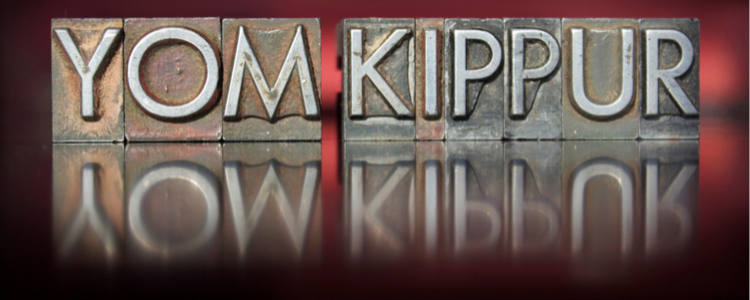Editor’s Note: The decision to fast or not is a personal decision between individuals, their medical providers, and spiritual leaders. NEDA recognizes the complexity of this decision and encourages those who celebrate to observe the holiday in the best way for you.
In my late teens, Yom Kippur was my favorite holiday. We could do a social experiment where you gather all the Jewish people you know and ask them their favorite holiday and I guarantee you that you would get very few “Yom Kippur” answers. I didn’t love Yom Kippur because it was the holiest day of the year, nor did I love it for the hours of time spent in temple. No, I loved Yom Kippur because I got to fast and it was normal and expected. I got to be in my eating disorder and no one questioned it for a second.
Throughout my twenties I spent most Yom Kippurs in treatment, but if I happened to be out and on my own, you better believe I still fasted. I might not even go to services, but I had an excuse to fast, so I took it.
Here is one thing I can tell you with absolute certainty—how I was using fasting at Yom Kippur WAS NOT THE POINT of fasting on Yom Kippur. But even knowing this, I felt such a sense of longing to fast every year and intense guilt for not fasting, even though it was in the best interest of my health, and, you know, staying alive. Last year, for the first time, I didn’t fast, and I didn’t have guilt about it.
The point of fasting on Yom Kippur is something called teshuva, which is Hebrew for repentance. This makes sense since Yom Kippur is the day of repentance. Fasting, as my logical mind sees it, is a symbol of repentance for many people because it’s HARD—it’s supposed to be hard at least—and with that you reflect on things and are supposed to have some sense of purity from your sins. For me, and for many people with eating disorders or in recovery from eating disorders, fasting is not hard. It feels like freedom and numbness and simplicity, and once again, THAT IS NOT SUPPOSED TO BE THE POINT.
Fasting on Yom Kippur is supposed to be a sign of affliction. To me fasting was quite the opposite—it was heaven.
There are ways of giving up something that have nothing to do with food. For example, I will be giving up my phone for the 25-hour period where I would otherwise have been fasting. It’s something that’s difficult for me to give up and makes me reflect on the past year and on myself without the interference of technology to occupy my mind.
When it comes down to it, Yom Kippur is a day of repentance and the biggest thing I have to repent for in my life is the 18 years of insanity and torture I put my body through. I have to repent for my starvation and all of the relationships I damaged due to my physical, mental, and emotional state. Looking at it in that light, how would it make sense to repent through fasting?
Honestly, this year I probably could fast without relapsing, but that doesn’t mean that it is worth that risk. Yes, this year fasting actually would be hard since I’ve set out on this new journey of eating based on hunger and desire and I’m ALWAYS hungry, but that doesn’t mean that has to be the end all and be all of how I choose to repent. And regardless of those two things, that isn’t the point of the holiday. The point of the holiday isn’t fasting, that’s just the typical ritual that we go about GETTING to the point of the holiday. The point of the holiday is repentance, holiness, and closing the book on another year of life.
I want my next chapter to be one of recovery, adventure, and freedom—and fasting is not how I, personally, will get there. It is different for everyone. If fasting is right for you, FANTASTIC. If fasting is not right for you, ALSO FANTASTIC. Observe the holiday how it makes sense for YOU, and with what brings meaning and reflection TO YOU. That is the point.
And I will be abstaining from technology all day. So, if I don’t speak to those observing before then, have a good holiday. If you choose to fast, have an easy fast. If you do not choose to fast, have a restful day of reflection… whatever that means for you.
Mindy is from Virginia Beach, VA and currently lives in Denver, CO. She spent 12 years in and out of treatment for her eating disorder and is currently exploring and rebuilding her identity, values and life. She is currently working with special education middle schoolers while also exploring tennis, writing, and other interests. She writes a blog, inrecoverybutnowwhat.com, about the struggles of reintegrating into adult life in recovery after extended treatment stays.






